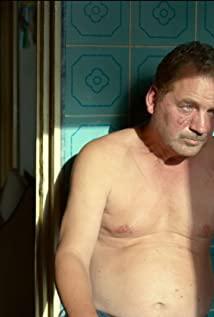The story takes place in Romania in the 1980s, a society that banned abortion. The film is about a series of depressing and shocking things that happened when the kind Otilia helped her roommate Gabita have an abortion.
There are often hidden clues in the first shot of each film. The pointer at the beginning of the film is ticking, and the rush makes people anxious, suggesting that the whole story is inextricably related to time, echoing the title of the film.
The biggest shooting feature of this film is the use of hand-held lens and shoulder-mounted camera. This shooting method makes the whole film more realistic and breathable, giving the audience a wonderful feeling of being in the middle of the event. While Otilia is busy helping her roommate Gabita get an abortion, Gabita is shaving her legs recklessly. Such a shot implies that the client, Gabita, does not take abortion seriously, and is very naive and selfish in handling the issue, which is also confirmed in the following paragraphs. And Otilia is a kind girl who will find milk powder to help stray cats even if she really has no money. It is such a kind girl who falls into the "trap" step by step and uses her body to make up for the far from enough abortion operation fee. Facing the roommate who deceived her and the beast-like Doctor Beibei, Otilia chose to remain silent. She smoked alone in the hallway, and a dim light bulb flickering next to her spoke wonderfully of her silence.
The director of this film was deeply influenced by Andre Bazin's "long-shot theory" of the New Wave movement, and made extensive use of meaningful long-shots. In addition, there is a more documentary shadow, because no background music is used in this film. This reminds me of "Blind Mountain", the same real hand-held footage, the same real audio-visual language, the same noisy voice-over. This technique was performed to the extreme in the scene of Otilia going to her boyfriend's house to eat together. The camera was fixed (without using a tripod or hand-held, the fixed position is fixed) to the front of Otilia, a long The seven-minute silence of Otilia fully expresses her thoughts of worrying about Gabita, while in front of the screen we can only stand by in such an anxious mood that it is difficult to get out. Facing the cynicism of her boyfriend's family, having dinner with unfamiliar people, and facing unavoidable questions, Otilia still chose to remain silent. Under the noisy human voice, what we can understand is that this is an era of distribution upon graduation, an era in which the majors studied form a chain of contempt, and an era of morbid depression.
Whether it is the static of the fixed shot or the follow-up movement of the moving shot, even if there is not too much line modification, each shot tells the inner emotions of the characters, and the audio-visual language feast brought by the lens alone is enough to make the audience feel It becomes ups and downs with the change of the protagonist's mood. This kind of real emotion is brought into people's minds for a long time, and the aftertaste lasts for a long time.
When Otilia hurried back to the hotel room, Gabita was asleep. When Otilia hurried back to the hotel room, Gabita's sleeping appearance accompanied by the dim light made us have a good time. A sigh of relief. But then, the corpse of the four-month-old baby is shown as a close-up in front of the audience. The shaking of the hand-held camera echoed Otilia's rapid and tense breathing. The dark space could not restrain Otilia's deep helplessness. The sound of things rolling down hit Otilia's heart. , also struck the hearts of the audience. It can't be called a tragedy, it can't be sympathized with, it's like a shallow scar in the bottom of my heart, it's an eternal secret that will be slowly swallowed by time.
In fact, whether it is books or music or movies, the reason for moving people is always emotional resonance. The film's background is very similar to China during the Cultural Revolution in the 1960s. In the film, in Romania, where materials are scarce, cigarettes have to go through many rounds before they can be bought on the black market; the front desk of the hotel asks in detail about major events and small matters like checking household registration, and documents are required wherever they go; parents are assigned to work for hegemony after graduation. endlessly. In the repressed and silent pictures, the director's subtle audio-visual language gently narrates them.
"Movies can't change, they just tell."
View more about 4 Months, 3 Weeks and 2 Days reviews










